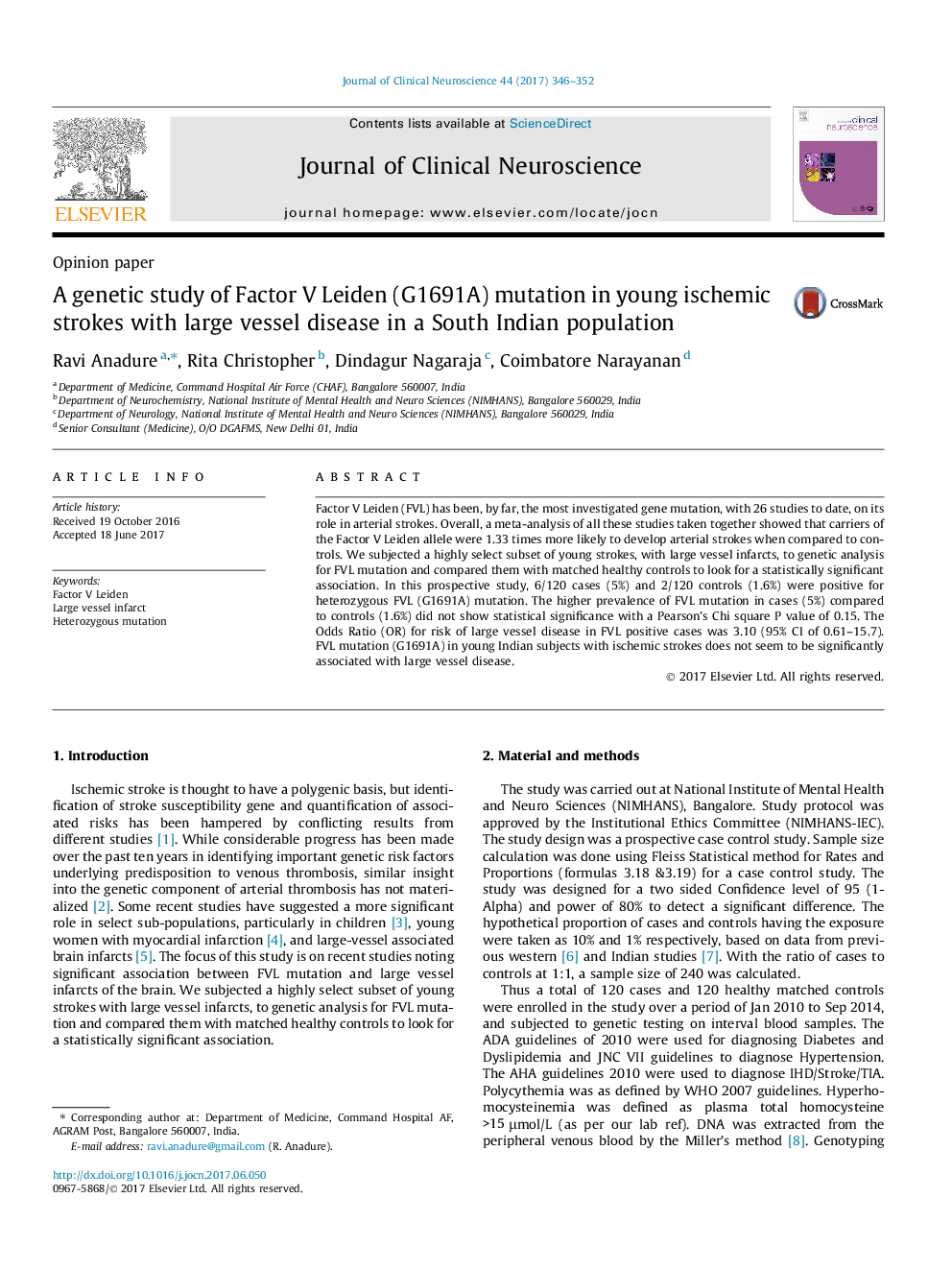| Article ID | Journal | Published Year | Pages | File Type |
|---|---|---|---|---|
| 5629568 | Journal of Clinical Neuroscience | 2017 | 7 Pages |
â¢This genetic study found 6/120 stroke cases and 2/120 healthy controls positive for heterozygous FVL (G1691A) mutation.â¢The higher prevalence of FVL in cases (5%) compared to controls (1.6%) was not statistically significance (P = 0.15).â¢In young Indian subjects with large vessel ischemic strokes, the FVL mutation does seem to have a causal association.â¢A high occurrence of thrombotic ICA disease was noted in 5/6 patients who were FVL heterozygous mutation positive.
Factor V Leiden (FVL) has been, by far, the most investigated gene mutation, with 26 studies to date, on its role in arterial strokes. Overall, a meta-analysis of all these studies taken together showed that carriers of the Factor V Leiden allele were 1.33Â times more likely to develop arterial strokes when compared to controls. We subjected a highly select subset of young strokes, with large vessel infarcts, to genetic analysis for FVL mutation and compared them with matched healthy controls to look for a statistically significant association. In this prospective study, 6/120 cases (5%) and 2/120 controls (1.6%) were positive for heterozygous FVL (G1691A) mutation. The higher prevalence of FVL mutation in cases (5%) compared to controls (1.6%) did not show statistical significance with a Pearson's Chi square P value of 0.15. The Odds Ratio (OR) for risk of large vessel disease in FVL positive cases was 3.10 (95% CI of 0.61-15.7). FVL mutation (G1691A) in young Indian subjects with ischemic strokes does not seem to be significantly associated with large vessel disease.
